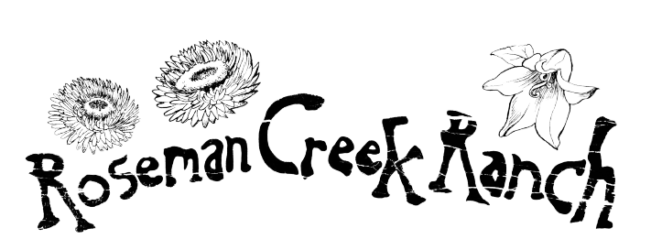Todd Walton: No Honeybees
In Todd Walton on June 8, 2012 at 6:04 am
From TODD WALTON
UnderTheTableBooks
Mendocino
“The busy bee has no time for sorrow.” William Blake
I am not a master gardener. I’ve been growing vegetables and flowers and herbs for fifty years, and at various times I’ve made my living as a landscaper, gardener, and pruner of fruit trees. A renter for most of my life, I have moved many times and had many gardens ranging in size from quite large to very small. I have gardened in cool climates and moderate climates and hot climates, in sandy loam and rich black earth and barely arable pygmy; and I’ve made a habit of picking the brains of other gardeners about the how’s and why’s and do’s and don’ts of growing things. Which is all to say, I know something about gardening, but would not describe myself as an expert.
People exploring my gardens used to ask, “How do you attract so many honeybees?”
And I used to reply, “Borage and white clover.”
I was twenty-one and the proud creator of a big vegetable garden in Santa Cruz when I discovered how incredibly attractive borage is to bees, and I have known about the bee-seducing power of white clover since I was a boy and had the arduous task of mowing a large lawn of white clover with an old dull steel push mower, a weekly chore that gave me bigger muscles than most of my friends and made me the dreaded enemy of hundreds of happily grazing honeybees.
However, as of early June in my Mendocino garden of 2012, I have yet to see a single honeybee visiting the big beautiful borage plants with their myriad blue flowers, nor have I seen any honeybees delighting in the robust white clover growing between two of my vegetable beds. Bumblebees abound, thank goodness, as do various other pollinating insects, but honeybees are notably and sadly missing from my garden this year. How come?
“What is not good for the swarm is not good for the bee.” Marcus Aurelius
For several years now I have been reading articles about the ongoing and accelerating collapse of honeybee colonies in the United States and Canada and around the world, resulting in the shocking disappearance of honeybees. I have counted myself extremely lucky to have plenty of honeybees in my garden here in Mendocino given the dire state of honeybee populations elsewhere; but right now there are no honeybees in my garden, and I think I know why. Someone around here is using neonicotinoids.
Neonicotinoids, as with previous generations of insecticides, kill insects by attacking their central nervous systems. But unlike these predecessor poisons that killed bugs during and shortly after spraying, neonicotinoids are absorbed into the tissues of plants and remain there, fully toxic, through an entire growing season (or seasons) which, of course, includes those weeks and months when the poisoned plants are flowering and being visited by unsuspecting honeybees, who then return to their hives coated with poisonous pollen and poison the entire hive.
The science confirming the direct causal link between neonicintoids and honeybee colony collapse is indisputable, so much so that France, Germany and Italy, among other nations, have wisely banned the use of neonicotinoids. However, the giant pharmaceutical/pesticide companies, including Bayer (of Bayer aspirin fame) that produce and sell neonicotinoids, are spending many millions to dispute the science so they can continue making billions selling this latest greatest poison, of which jillions of gallons are sold and deployed in the good old U.S.A.
“Against stupidity the very gods themselves contend in vain.” Friedrich Schiller
Can we agree that manufacturing and knowingly employing a chemical that is the proven cause of honeybee annihilation is stupid and shortsighted? Good. Yet isn’t it interesting that people acting in such stupid and shortsighted ways are frequently (as in most of the time) the captains of industry and the rulers of nations? Why would this be? Darwin suggested that Nature selects for traits that aid in the continuation of a species. If that is true, then stupidity must contribute (or have contributed) greatly to the survival of the human species, for why else would stupidity of such epic proportions be so prevalent in so many human societies and a dominant trait of leaders in those societies?
I realize that traits often come in bunches, and that avarice and greed and cruelty and narcissism might be bundled with stupidity to give certain individuals a survival edge over others. But it still seems odd to me that people who knowingly extinct honeybees should have any advantage over those who dedicate themselves to making the world a wonderful place to be a bee.
“If you suppress grief too much, it can well redouble.” Moliere
I am very sad about the disappearing honeybees and our collective unwillingness to put an end to the cause of their disappearance. I am also very sad about the broken down nuclear power plants at Fukushima continuing to radiate the earth and the ocean (speaking of incredible shortsightedness and stupidity) and our collective unwillingness to shut down all the nuclear power plants in the world.
